19+ SAMPLE Home Repair Contract
-
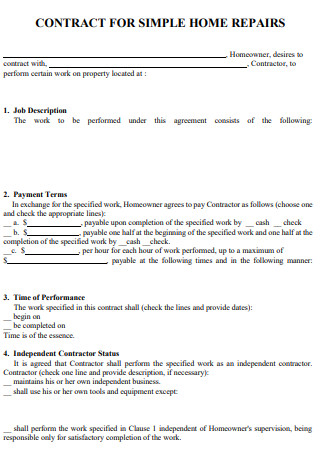
Simple Home Repair Contract
download now -
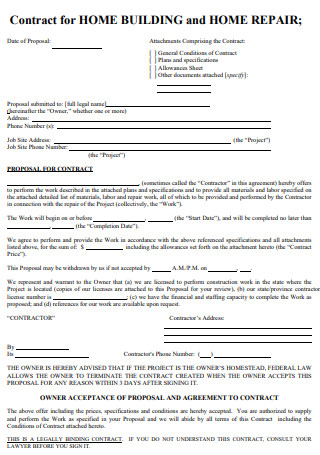
Home Building & Repair Contract Proposal
download now -
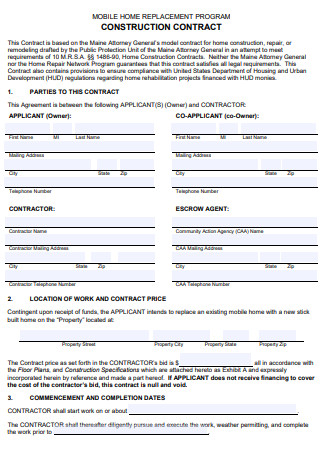
Home Repair Construction Contract
download now -
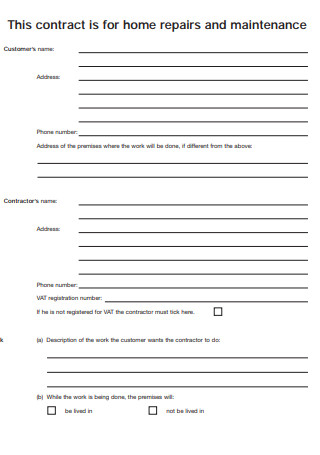
Home Repair Maintenanace Contract
download now -
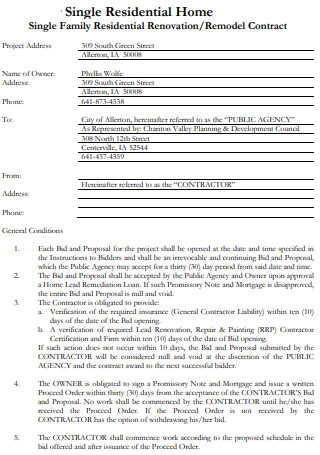
Residential Home Renovation & Remodel Contract
download now -
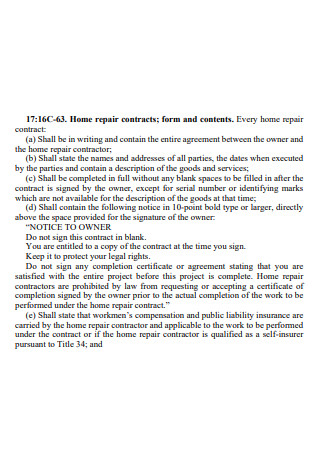
Home Repair Contract Form and Content
download now -
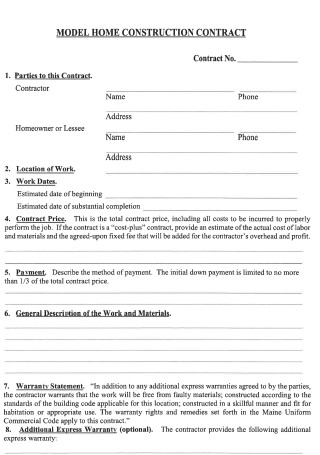
Model Home Repair & Construction Contract
download now -
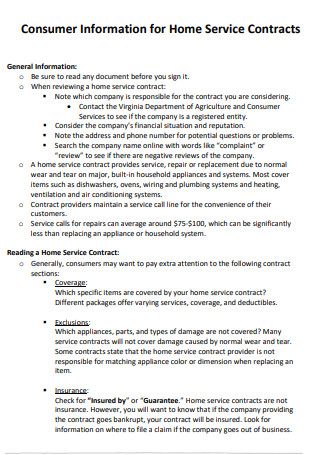
Consumer Information Home Service Repair Contract
download now -
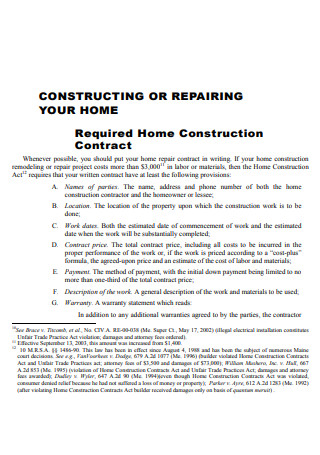
Home Repair Required Construction Contract
download now -
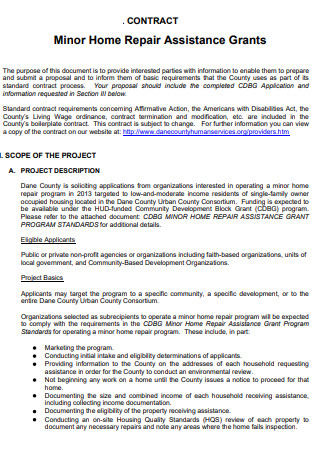
Minor Home Repair Assistance Grant Contract
download now -
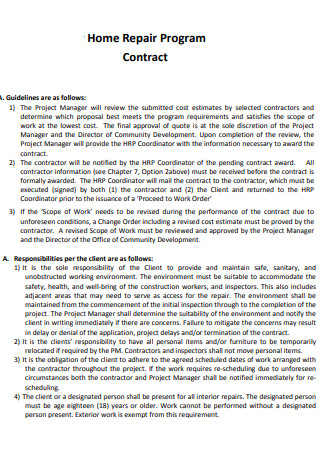
Home Repair Program Contract
download now -
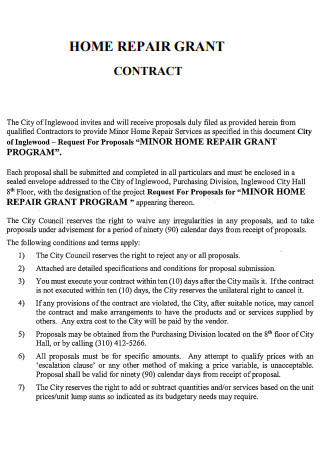
Home Repair Grant Contract
download now -
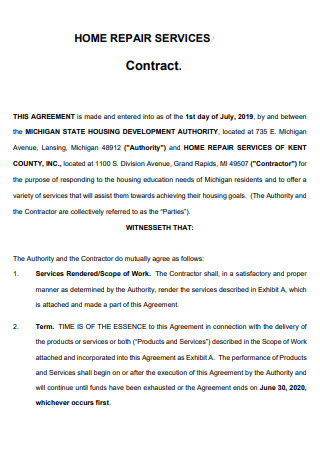
Home Repair Service Contract
download now -
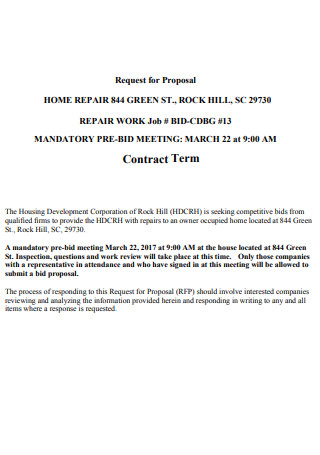
Home Repair Contract
download now -
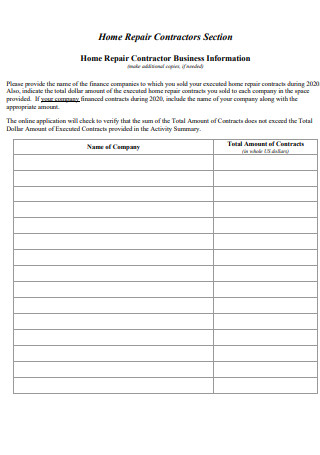
Annual Report for Home Repair Contract
download now -
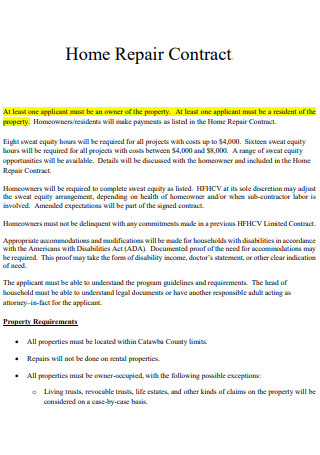
Basic Home Repair Contract
download now -
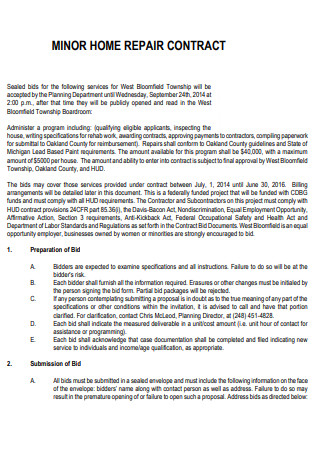
Minor Home Repair Contract
download now -
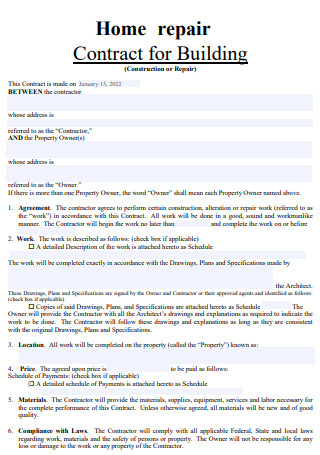
Home Repair Building Contract
download now -
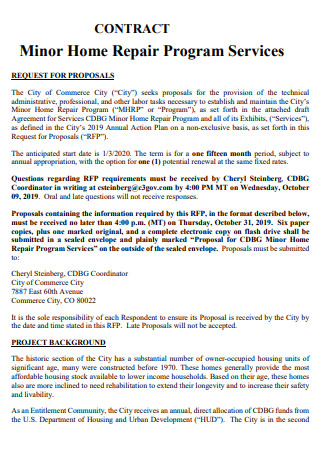
Home Repair Program Services Contract
download now -
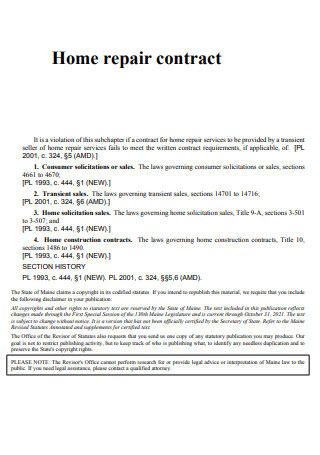
General Home Repair Contract
download now
FREE Home Repair Contract s to Download
19+ SAMPLE Home Repair Contract
What Is a Home Repair Contract?
Benefits of Hiring a Professional for Home Repairs
Most Common Home Repairs
How to Write a Home Repair Contract
FAQs
How do you protect yourself when hiring a contractor?
How much should you budget for a home repair contract?
What is the goal of home maintenance?
What Is a Home Repair Contract?
A home repair contract is a legal Repair Agreement between an owner of the property and a general contractor. When executing construction work on residential property, general contractors give them to customers. The legal document covers the scope of work, the completion timeline, pay, and other important details. Even if a client is hiring for a little project, such as painting a room, it is in everyone’s best interest to ensure that residential home repair contractors are covered by a signed contract. As you write, be sure to check out the home repair contract sample to see how it is formatted.
Benefits of Hiring a Professional for Home Repairs
Just because you think you can do something yourself doesn’t mean you should. Even if you want to save on money, if you do it yourself without any skill or knowledge on handling such a task, it will end up not as repaired as safely recommended. And so there are numerous benefits to hiring a professional for any home repair project. Read this curated list of the benefits and drawbacks of a DIY project, then compare them to the cost of hiring a pro. Give it a read before you prepare that Contract for simple home repairs.
Most Common Home Repairs
Owning a home may be most of what people aim for. However, many people overlook one of the most significant costs associated with homeownership: repairs. It’s impossible to avoid it. Concerns regarding issues will always arise if you own a home. Preventive Maintenance can be extremely beneficial. There are, however, some things you simply cannot avoid. Some home maintenance issues are simple to handle, but others can put you in a financial bind if they arise at an inconvenient time. Some you can predict, but others sneak up on you and force you to spend money you didn’t intend to.
How to Write a Home Repair Contract
It would be difficult for someone inexperienced in writing up contracts to make one for a home repair professional, especially if you are already dealing with issues that are taking up most of your energy. To focus less on the structure of the contract and more on the content, you could make use of the sample contract for home repairs provided within this article. Additionally, the guide below will help you through filling in the standard home repair contract.
-
1. Specify Your Scope of Work
The remodeling contract begins with a Scope of Work that specifies what is and is not covered by the contract in terms of the work to be done. It should specify how the work will be accomplished, what supplies will be used, where the materials will be stored, and how the project site will be cleaned up. Floor plans and 3D renderings of the property before and after the planned upgrades should be supplied as well. A set of 3D renderings, the electric plan, the plumbing plan, tile and flooring layout, cabinet install plans, and possibly HVAC plans should all be included in the project’s blueprints.
-
2. License Number and Insurance
An important section included in the contract is the material or mediums that can display the company or contractor’s name, licensed contractors, and their respective license numbers. In addition, the contractor’s license number must be visible on all correspondence between a contractor and a property owner. Projections, presentations, contracts, and invoices are all examples of communications used in the contracting process. It is important to present these because it signifies they are professionals who can handle the task. Otherwise, hiring someone without a license will end up with a skill set that is not trusted.
-
3. Description of Change Orders
When it comes to remodeling, there’s a good chance there will be a stipulation about performing repairs that weren’t included in the original estimate. This is reasonable, however, the procedure for dealing with unanticipated charges should be established. Change requests are used to make contract modifications. Even if it were last minute or verbally approved by both parties, it is important to get it in writing. Make sure that modifications must be documented and that any change orders over a particular dollar amount require your signature before work can begin.
-
4. Payment Schedule
When progress fees should be made should be specified in the contract. Setting progress payments to be provided at the beginning of specific segments of the job rather than at the end of a part of the job is a smart idea. It’s far easier to tell when a new phase of a project has begun than it is to tell when it has ended. Make sure to discuss in this section the division regarding the payment transaction that will take place throughout the home repair.
-
5. Completion Timetable
The contract should include when the work will be completed, including the start and end dates. Of course, these dates are subject to change, but you should have a clear mechanism in place that tells you of any changes promptly and clearly. Even an estimation is better than not including an expected completion date. You can make use of a Timeline to better present it to both parties.
-
6. Clauses Required by Law
There are laws within your state or city that your contract should include depending on where you live. As a matter of structure, validity, and enforceability, there are many other typical contractual conditions to include in your agreements. Contingency clause, misrepresentation clause, liability clause, termination clause, indemnity clause, and choice of law clause are some more terms you may wish to include based on your customer’s demands. Make sure to specify all of these in your contract.
FAQs
How do you protect yourself when hiring a contractor?
Keep track of all connected paperwork in a file. Copies of the contract, contractor licenses, evidence of insurance, change orders, and all correspondence with your contractor are all included. Keep track of all phone calls, emails, discussions, and activities in a diary or notebook. You might also wish to snap photos as the project advances. Review the examples of home repair contracts to see the parts of what you can use to protect yourself.
How much should you budget for a home repair contract?
How much should you budget for a home repair contract? When financing unexpected home repairs, there are a few rules of thumb to keep in mind. The one percent rule states that you should put aside at least one percent of your house’s value for home maintenance every year. This works out to $2,600 each year, or $200 every month, for a $260,000 home.
What is the goal of home maintenance?
Every home will deteriorate over time, but routine home maintenance allows you to repair, clean, protect, and replace parts of your home to avoid more serious and costly issues in the future. Safety is an important aspect of any home property, and so you won’t have to constantly worry, make sure you include home maintenance and repairs as part of your life to care for your Property.
You reached the end of the article but you have what you need to create a contract for your home repair necessities. Along with the printable simple home repair contract template, you don’t have to worry over the format. You only need to prioritize the content which is all the more important when approaching a contractor. Don’t waste any time and start writing now!
